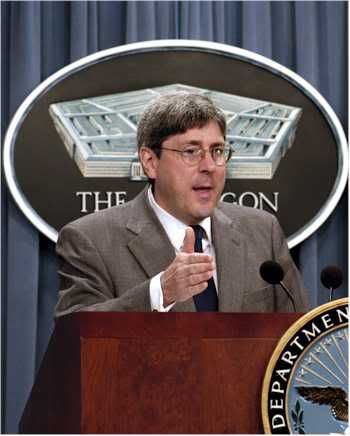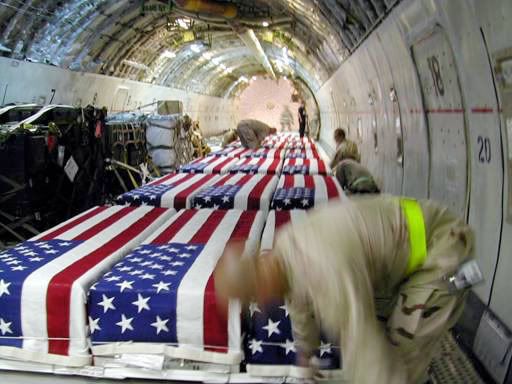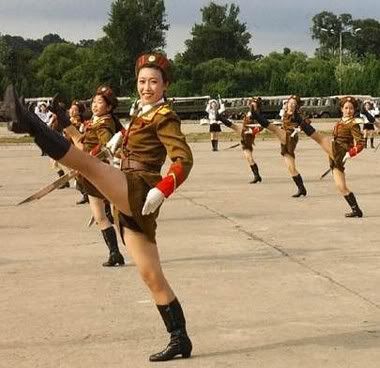Rumsfeld's Pre-War "Strategic Thoughts" Memo to Bush
 I'm reading Douglas Feith's War and Decision on my Kindle, and am finding myself periodically "cutting" pages electronically for filing and future reference, and adding notes regularly -- excellent features that make the Kindle a good little reference tool.
I'm reading Douglas Feith's War and Decision on my Kindle, and am finding myself periodically "cutting" pages electronically for filing and future reference, and adding notes regularly -- excellent features that make the Kindle a good little reference tool.This morning, I read Feith's summary of Rumsfeld's "Strategic Thoughts" memo that presented to President Bush the Pentagon's thinking at the conclusion of initial planning for the war in Afghanistan. It's fascinating to read today, so I'll present Feith's narrative and excerpts here. Italicized sections are from the actual memo; non-italicized indented sections are from Feith.
In the "Strategic Thoughts" paper, our main point was that the United States should be focusing on the state actors within the enemy network, which could create a strategic and humanitarian nightmare for us by giving a terrorist group a biological or nuclear weapon that could kill hundreds of thousands of people, perhaps even millions.This purpose, so vivid in the days after 9/11, has faded now for many, but continues to be very real as Iran pursues its bomb, Islamists struggle to take over Pakistan, and intelligence reports of terrorist queries into various WMD components continue to trouble those who think rationally.
One way to disrupt terrorist groups was to compel their state sponsors to change policies on terrorism and on weapons of mass destruction. This could be done, we reasoned, through military action against some of the state sponsors, and pressure-- short of war -- against others. The effectiveness of the diplomatic pressure would hinge to some extent on the success of our military actions.Contrast that with Obama's no preconditions, no military presence in Iraq approach.
In some cases, we would get leverage by aiding local opposition groups, rather than sending U.S. forces to take the lead in overthrowing foreign regimes. The regimes that supported terrorism tended to be oppressive domestically as well as aggressive internationally, so there were opposition groups in various countries that we could assist as a way of pressuring the leaders there. The U.S. "strategic theme," Rumsfeld advised the president, should be "aiding local peoples to rid themselves of terrorists and to free themselves of regimes that support terrorism."We are seeing this work in Iraq today as local citizens are contributing information that is putting al-Qaeda on the run, but in general,
 the long war in Iraq is preventing us from implementing enough of this strategic theme elsewhere in Repressistan.
the long war in Iraq is preventing us from implementing enough of this strategic theme elsewhere in Repressistan.The United States could set up the pattern in Afghanistan by supporting the anti-Taliban and anti-al-Qaeda militias:This is not at all as the war turned out, although it is pretty much how the war is today.Air strikes against al Qaeda and Taliban targets are planned to begin soon. But, especially in the war's initial period, I think US military action should stress:
- indirect (through local, non-US forces) action, in coordination with and in support of opposition groups;
- direct use of US forces initially primarily to deliver logistics, intelligence and other support to opposition groups and humanitarian supplies to NGOs and refugees, and subsequently
- on-the-ground action against the terrorists as individuals -- leaders and others ...
Rumsfeld cautioned that the United States should be restrained on air strikes until we had sufficient intelligence to mandate "impressive (worthwhile) strikes" against al Qaeda and other targets. In an especially remarkable passage, he also advised the President that victory in in the war on terrorism would require geopolitical changes substantial enough to cause every regime supporting terrorists to worry about its vulnerability:If the war does not significantly change the world's political map, the U.S. will not achieve its aim. There is value in being clear on the order of magnitude of the necessary change. The USG [U.S. government] should envision a goal along these lines:
- New regimes in Afghanistan and [some other states] that support terrorism (to strengthen political and military policies elsewhere.
- Syria and Lebanon.
- Dismantlement or destruction of WMD in [key states]
- End of many other countries' support or tolerance of terrorism.
 Feith does not reveal the other states where regime change and destruction of WMD capabilities were envisioned; presumably they are Iraq, Iran and North Korea (and Syria and Cuba to a lesser extent). Two of the three biggies still exist and there is little sign that we have moved them one bit off their positions immediately post 9-11. We have done much, but not enough, to stop other countries' support of or tolerance for terrorism, but these bullets are still largely unrealized.
Feith does not reveal the other states where regime change and destruction of WMD capabilities were envisioned; presumably they are Iraq, Iran and North Korea (and Syria and Cuba to a lesser extent). Two of the three biggies still exist and there is little sign that we have moved them one bit off their positions immediately post 9-11. We have done much, but not enough, to stop other countries' support of or tolerance for terrorism, but these bullets are still largely unrealized.Rumsfeld again raised the idea of deferring military strikes in Afghanistan:I am impressed with the clarity and visionary quality this original strategic framework for the GWOT. It is a decidedly American strategy, predicated on our military capabilities, for sure, but also on the belief that people will strive for freedom. It is also typically American in that it is designed to avoid unnecessary deaths and promote humanitarian responses.
- It would instead be surprising and impressive if we built our forces up patiently, took some early action outside of Afghanistan, perhaps in multiple locations, and began not exclusively or primarily with military strikes but with train-and-equip activities with local opposition forces and humanitarian aid and intense information operations.
- We could thereby:
- Garner actionable intelligence on lucrative targets, which we do not now have.
- Reduce emphasis on images of US killing Moslems from the air.
- Signal that our goal is not merely to damage terrorist-supporting regimes but to threaten their regimes by becoming partners with their opponents.
- Capitalize on our strong suit, which is not finding a few hundred terrorists in caves in Afghanistan, but in the vastness of our military and humanitarian resources, which can strengthen the opposition forces in terrorist-supporting states.
It is not, unfortunately, entirely as the war has worked out. "Misunderestimating" the distrust of America in Muslim lands and the ability of Sunni and Shi'ia terror groups to exploit that misunderstanding in the early years of the war ended up focusing our efforts almost exclusively on only two theaters of war, and on war more than humanitarianism. (Yes, of course the humanitarianism is there, but it is not the world's focus due to the successful efforts of our enemies to refocus attention on violence.) As a result, we are seen too much as occupiers and not enough as liberators; a false perception, but much of the world's perception nonetheless.
Feith's book is showing me that there was much more careful thought going into the GWOT than the left would have us believe. There were no cowboys. But it also shows that war is not as much about well laid plans as it is about what really happens once forces are set into action -- and if we made more of that in our strategic planning, we might not be as likely to get into difficult, almost intractable situations, as we have in Iraq.
Labels: Bush, Rumsfeld, War in Iraq, War on Terror




<< Home